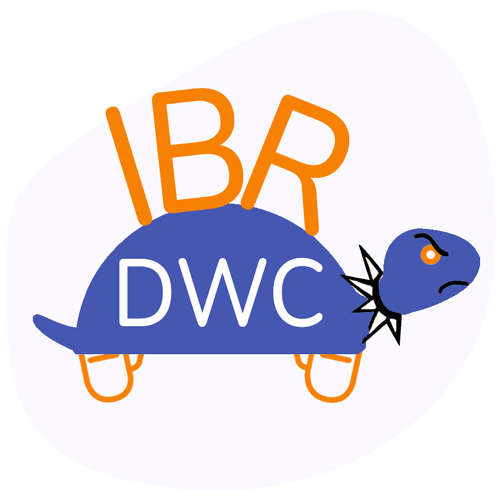Benihana AND Broadspire Join IBR Hall of Shame

In this entry in the IBR Hall of Shame, we surface still another example of a workers’ comp claims administrator clearly not understanding, or not complying with, and/or just being incompetent about, the rules for paying providers.
As we’ve pointed out before, payers face no consequences when they fail to follow IBR rules. So our latest perpetrators, Broadspire and Benihana, join legions of other insurance companies and claims administrators, and the employers they supposedly serve, that break payment rules with impunity.
PPO Contract Seizes 20% Instead of 5%
This provider’s tale of misery starts with Broadspire allowing a PPO contract to incorrectly seize part of the provider’s reimbursement. While the provider contracted a 5% discount with the PPO, Broadspire incorrectly slipped the PPO 20% of the provider’s reimbursement.*
Because the provider uses DaisyBill workers’ comp billing software, the provider’s billing staff immediately identified the incorrect PPO discount and filed a Second Review appeal demanding the $13.92 underpayment. Broadspire denied that appeal. To receive the $13.92, California law forces the provider to pay $195 to file an IBR.**
* BTW - PPOs offer no services to help injured workers return to work; these entities simply siphon off reimbursements from the providers who actually treat injured workers and try to help them get back to work.
**While it may seem ridiculous for the provider to appeal a $13.92 underpayment, (and here we toot our own horn) DaisyBill workers’ comp billing software makes these IBR appeals unbelievably easy.
Broadspire Fails as Agent for Benihana
Of course, the provider prevailed. Maximus ordered Broadspire to both pay the provider the correct reimbursement of $13.92 AND to reimburse the provider the $195 IBR fee.
Broadspire paid the $13.92 and chose to ignore the award of the $195 fee that was due to the provider. As the timeline below demonstrates, Broadspire refuses to reimburse the provider the $195 IBR fee.
This example of provider exploitation and rule noncompliance reveals how, yet again, the provider must shoulder all the responsibility for collecting payment. Below is a record of the multiple phone calls that were made trying to induce a claims administrator to meet its mandated obligations.
Date |
Action |
Note |
12/23/2019 |
$195 IBR Fee Due |
45-Days after Maximus Final Determination Letter |
1/8/2020 |
Left Voicemail #1 |
Left VM for adjuster GXXXXXXXX, saying we received the disputed amount but not the IBR filing fee. Requested a return call. |
1/16/2020 |
Left Voicemail #2 |
Left VM for adjuster GXXXXXXXX, saying we received the disputed amount but not the IBR filing fee. Requested a return call. |
1/21/2020 |
Spoke with adjuster |
Spoke with GXXXXXXXX, to explain the lack of payment of the $195 filing fee. Adjuster could not locate the bill and reported they would check with a supervisor who has wider searchability permission.
Adjuster promised to return our call the following day. |
1/30/2020 |
Spoke with adjuster |
Spoke with GXXXXXXXX, who said that they would speak with bill review and get to issue a check. |
2/18/2020 |
Spoke with adjuster |
Spoke with GXXXXXXXX, who inquired whether we contacted Bill Review yet. We reminded the adjuster, they were supposed to contact bill review. The adjuster requested a copy of the IBR decision an invoice and notes explaining why $195 is due. |
This indifference to reimbursing the provider for their $195 fee is but one of the symptoms of a blatantly unfair system. Broadspire can act in this way confident that it will suffer no consequences for failing to reimburse the provider correctly or timely. In fact, it was the provider, and not Broadspire, who expended even more resources attempting to be reimbursed for the $195 IBR fee.
The Double Standard
We have repeatedly pointed out the double standard that prevails in California. Whereas claims administrators and insurance companies can break rules with little or no penalty, the providers who treat injured workers have to cross every “t” and dot every “i” on the correct form and on time. There are no excuses allowed to the provider, such as lost mail, broken technology, or any of the other reasons that claims administrators commonly give for failing to compliantly adhere to California law and DWC regulations.
A provider who receives incorrect payment has already jumped multiple regulatory hurdles:
- First, to receive authorization to treat the injured worker;
- Second, to bill compliantly and on time;
- Third, to file a second review appeal; and
- Finally, to file an IBR and pay $195.
On top of all this, to have to beg claims administrators to reimburse that $195 is just too much.
The California Division of Workers’ Compensation (DWC) needs to make changes to address this abuse of providers. Claims administrators clearly understand it is the provider’s burden to force correct reimbursement for treating injured workers.
IBR Rules, Explained Again
When the amount owed to a health care provider following treatment of an injured worker is in dispute, the provider files an appeal—or Second Review—asking the claims administrator to review the bill again. If the claims administrator still refuses to pay up, the provider’s only option is to pay $195 to file for Independent Bill Review (IBR) with the California Division of Workers’ Compensation (DWC), who delegates the review responsibility to Maximus.
If the IBR results in an ‘Overturn’ decision—as about 55% do—then the claims administrator must correctly reimburse the provider for the services AND reimburse the provider for the $195 IBR fee the provider paid to file the IBR. These payments are due within 45 days of the date on Maximus’ Final Determination Letter, according to the California Labor Code 4603.2.(2)(A).
Following an Overturn IBR decision many claims administrators fail to reimburse the provider.
It should not take even a single phone call or anything at all apart from Maximus’ letter. But Broadspire is not the only claims administrator behaving badly.
Stay tuned for further entries in our IBR Hall of Shame.
DaisyBill offers all the tools a provider needs to bill compliantly -- and to appeal effectively, when needed. Our Billing Software includes everything you need for RFAs, bills, and appeals for second review, plus tools for effective IBR requests, including our IBR Decision Library. Schedule a free demonstration today:
SCHEDULE DEMO
DaisyBill provides content as an insightful service to its readers and clients. It does not offer legal advice and cannot guarantee the accuracy or suitability of its content for a particular purpose.

.gif)
